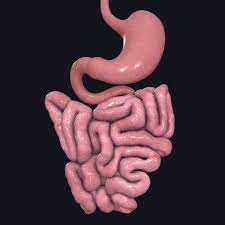Music To Our Ears
- Feb 19, 2022
- 2 min read
Ever listen to music and get a mood boost? Does your favorite song or artist put a smile on your face? Science says you're not alone. In fact music is being proved to have many positive effects on mental health. New research shows the benefits of music therapy for various mental health conditions, including depression, trauma, and schizophrenia. Music acts as a medium for processing emotions, trauma, and grief and can also be utilized as a regulating or calming agent for anxiety.

Lyric Analysis
While traditional talk therapy allows a person to speak about topics that may be difficult to discuss, many people may find this style jarring and difficult. The process of analyzing lyrics has been shown to aid processing emotions, thoughts and experiences. One who participates in music therapy is encouraged to break down lyrics they resonate with personally or create lyrics to help explain how they feel. They find lyrics that they believe represent obstacles in their life and learn to overcome them. Many cannot put into words the struggles they face and/or emotions that they feel. Most people have that one song or lyric that really hits home with us and those in music therapy utilize music like this to convey their thoughts and emotions in an effective manner. They can also song write lyrics. Songwriting is an experience in which the basic thoughts and feelings of authors can be expressed in a variety of ways. Lyrics, for example, can portray their own experiences and feelings in a direct, personal way that an instrumental track may be incapable of.
Use of Instruments
Playing instruments can encourage emotional expression, socialization and exploration of various therapeutic themes. It is clear that certain instrumentation can be used to reflect moods. For example the use of trumpets and other brass instruments often represents triumph, while a softer acoustic guitar represents feelings of comfort and mellowness. Percussion such as drums and symbols have been used in group settings to show solidarity, for example playing drums in a rhythm to represent a storm or deep conflict brewing in an individual. This struggle is “let out” in a way onto the drums and is a positive coping mechanism.
Listening to Music
Music can be used to alter our mood, either by matching it to an emotion or simply by matching it to the tempo of our day. We utilize music to regulate our mood, a practice that has proven benefits to stress and anxiety, but one that can also lead to sulking or wallowing in depression or sadness. The therapist can potentially use music to help the depressive or angry person find relief from his/her negative state. For example, the therapist could start by playing music that matches the current mood of the person, and then slowly shift the person to a calmer mood through tempo and rhythm.




Comments